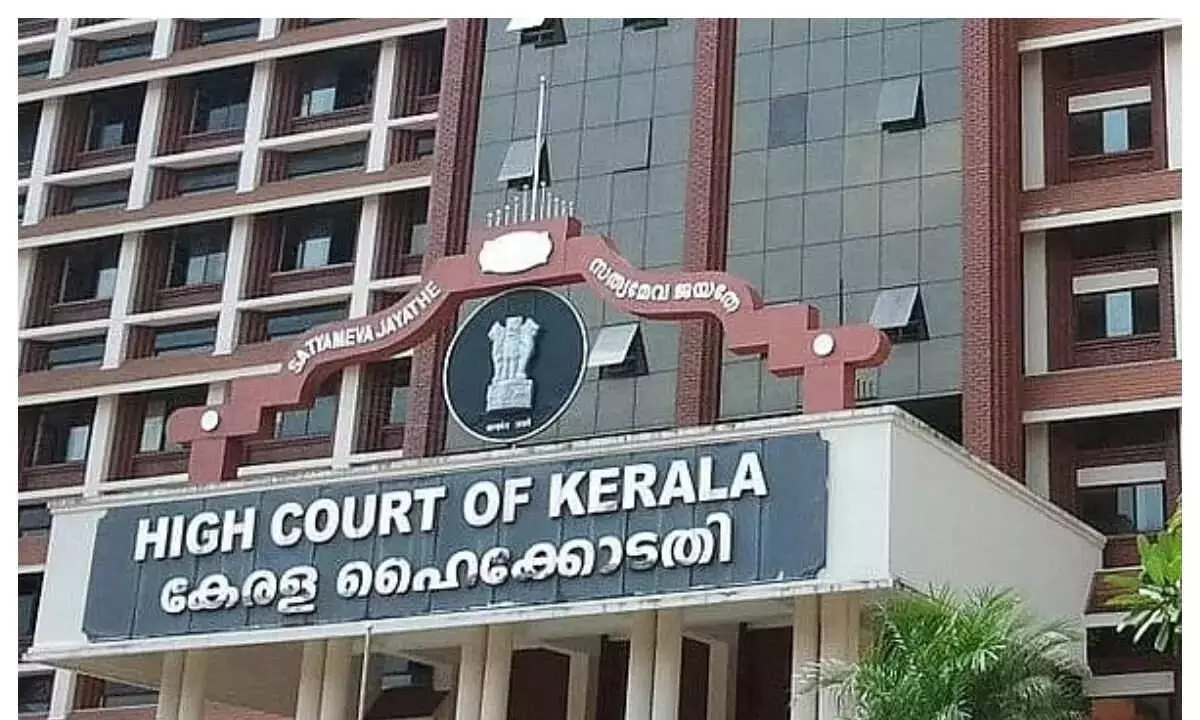
Kerala HC issues guidelines for handling sexually explicit evidence
text_fieldsKochi: The High Court of Kerala on Thursday issued guidelines to be followed while handling sexually explicit materials submitted as evidence, while ordering an investigation into the alleged leakage of visuals in the actor assault case of 2017.
The court acknowledged that the memory card, which contained the visuals of the attack, had been illegally accessed three times while under the jurisdiction of two lower courts, including the trial court.
Additionally, the trial court was instructed to probe the unauthorized access of the device, under the supervision of the District and Sessions judge.
In June 2022, reports surfaced regarding the tampering of the memory card, following which, the survivor approached the High Court, demanding an inquiry into the matter.
The counsel appearing for the survivor had suggested that the High Court lay down guidelines for all concerned, including courts, "to ensure that any sexually explicit material is preserved in such a manner that they are not accessed illegally." The Director General of Prosecution, TA Shaji, also submitted a series of suggestions.
 Also Read - CPI(M) goons attack journo & friend at CM's Nava Kerala Sadas
Also Read - CPI(M) goons attack journo & friend at CM's Nava Kerala Sadas
At present, there are no rules to guide law enforcement agencies, experts, or courts on how to handle sensitive electronic records of sexual crimes committed against women and children. The guidelines issued by the High Court are for law enforcement agencies and courts handling such sensitive evidence.
It says that any officer or agency handling a case should seize such electronic records with the utmost caution, preventing any chance of destruction to the content. This process should be conducted maintaining the privacy of the content, and separately documented.
The electronic record should be separately packed and sealed in damage-proof packets, each clearly labelled stating 'Sexually Explicit Materials' in luminous red ink.
The law enforcement agency should also maintain a register of the electronic records, with details of date, time, place of recovery, source, and the name of the officers involved in seizing and sealing the materials.
The sealed packet should be securely stored in lockers, recording the time and date of placing the packet in the locker. The person responsible for the locker's custody should also be named.
The packet should only be removed for transmission to court, and this action should be recorded in the register. Any person who is found to have accessed the electronic data after it was sealed shall be held accountable.
 Also Read - CPI Kerala secretary Kanam Rajendran dies at 73
Also Read - CPI Kerala secretary Kanam Rajendran dies at 73
The High Court also issued measures to be taken by courts that handle electronic records of sexually explicit materials.
Every court should maintain a register of the electronic records containing sexually explicit materials that it receives, along with the time, date, details of the crime, description of the packet, and information about the person who presented it to the court. The transmitting official should also declare that the packet was not destroyed or tampered with in any manner.
The Chief Ministerial Officer of the Court which receives the electronic record shall be responsible for examining it and ensuring that it is properly sealed and has not been tampered with.
If it is suspected that the packet is not in proper condition it should be reported to the Judicial Officer.
The Judicial Officer should summon the officer responsible for bringing the packet to the court and it shall be decided if a scientific investigation is needed to find out if the evidence was tampered with.
The Judicial Officer shall be present when the sealed packet is securely placed in a locker or chest and the keys shall be with the Judicial Officer or the Chief Ministerial Officer. If the court receives any request for examination of the packet, it shall be removed in the presence of the Judicial Officer.
The packet, being taken out, shall be further packaged and an outer label saying 'Sexually Explicit Material' affixed on it.
 Also Read - Inter-caste marriages part of changing times; can’t be prevented: CM
Also Read - Inter-caste marriages part of changing times; can’t be prevented: CM
The guidelines also say that no copies of such sexually explicit electronic records shall be provided to any person, including the accused in the said case.
The court may allow the accused or their lawyer to view them under the following conditions: there is a court order granting permission for it, and all such petitions are considered together so there is minimal playing of the visuals, the electronic record is handled only by experts, no equipment or secret device is used by anyone viewing the visuals, the proceedings are recorded in detail, and the electronic record is permanently destroyed when the case ends.
Finally, the High Court also issued measures for the examining authorities, including the maintenance of a register of electronic records containing sexually explicit materials.
The examining authority should confirm that the sealed packet it receives is not tampered with and report to the court if there is tampering. The experts handling the records should also ensure that no other person has access to it. If additional electronic documents containing sexually explicit material are created during the examination, that too shall be recorded in the register. Any copies and any forwarding of the material (to other divisions for instance) shall also be recorded.
The Court ended the guidelines by requesting the Union and State governments to formulate necessary rules for the safe handling of electronic records containing sexually explicit materials.
 Also Read - Actor assault: Dileep faces setback after HC ordering query into unauthorised memory card access
Also Read - Actor assault: Dileep faces setback after HC ordering query into unauthorised memory card access






